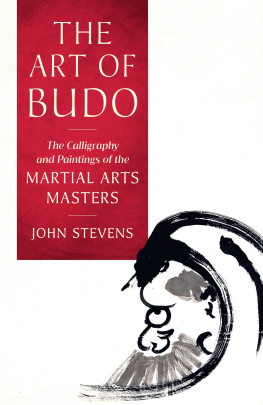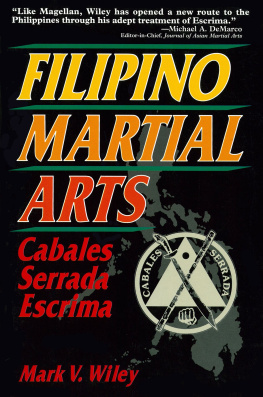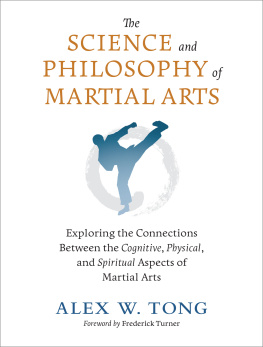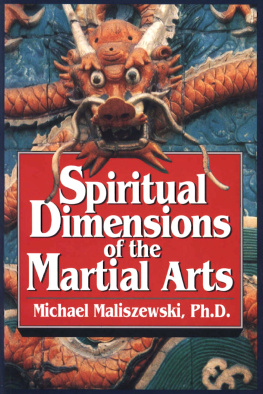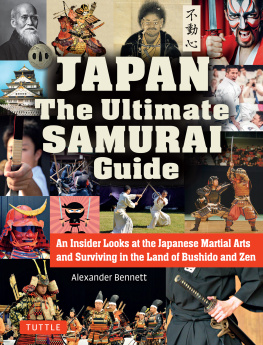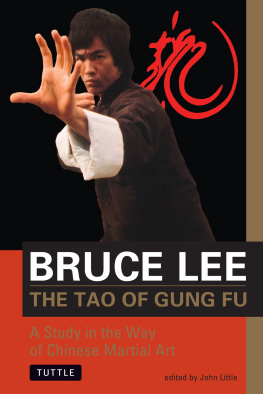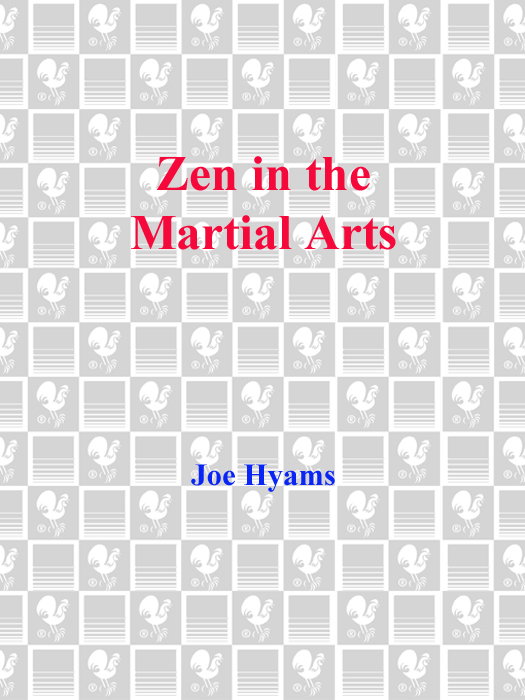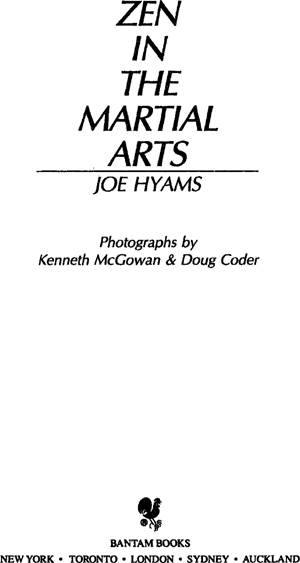LEARNING THE ARTLESS ART
As a result of years of disciplined study, Joe Hyams explains how mastering a martial art can foster a students personal and spiritual growth:
A dojo [practice hall] is a miniature cosmos where we make contact with ourselvesour fears, anxieties, reactions, and habits. It is an arena of confined conflict where we confront an opponent who is not an opponent but rather a partner engaged in helping us understand ourselves more fully.
Technical knowledge alone is not enough. A martial artist must simultaneously transcend technique and develop intuitive action so that the art becomes an artless art, a way to physical excellence, a way to spiritual enlightenment.
BANTAM NEW AGE BOOKS
This important imprint includes books in a variety of fields and disciplines and deals with the search for meaning, growth, and change.
Ask your bookseller for the books you have missed.
CREATIVE VISUALIZATION by Shakti Gawain
PEACE IS EVERY STEP: THE PATH OF MINDFULNESS IN EVERYDAY LIFE by Thich Nhat Hanh
TAO TE CHING: THE CLASSIC BOOK OF INTEGRITY AND THE WAY by Lao Tzu
WILD MIND: LIVING THE WRITERS LIFE by Natalie Goldberg
ACUPRESSURES POTENT POINTS by Michael Reed Gach
EMMANUELS BOOK by Pat Rodegast and Judith Stanton
HANDS OF LIGHT by Barbara Ann Brennan
LIGHT EMERGING: THE JOURNEY OF PERSONAL HEALING by Barbara Ann Brennan
LONG QUIET HIGHWAY: WAKING UP IN AMERICA by Natalie Goldberg
To Pat Strong, who patiently and
wisely guided me in each stage of my martial arts
training for many years and always provided an example
of the complete martial artist.
And to my wife, Elke, who has never entirely understood my
absorption with the arts but, nevertheless, has always
been encouraging.
CONTENTS
ACKNOWLEDGMENTS
I n the text of this book I have introduced most of the masters with whom I studied during the past two and a half decades. But I would be remiss if I did not give special thanks to the following: George Waite, for his advice, special training, and friendship; Bob Phillips, who, although not a martial artist, has the spirit, fighting ability, and good sportsmanship typical of all professional athletes; Bernie Bernheim, who, starting to study karate at the age of fifty-seven and becoming a black belt at sixty-one, is an inspiration for all who believe martial arts are only for the physically young; Emile Farkas, for his advice and comments on the text; Stan Schmidt of Johannesburg, who in the heart of South Africa runs a traditional dojo which has produced many world champions; and Larry Tatum, who has graciously allowed me to train from time to time with his classes at Ed Parkers dojo in Santa Monica, California.
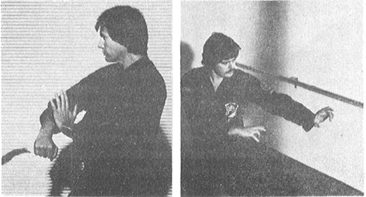
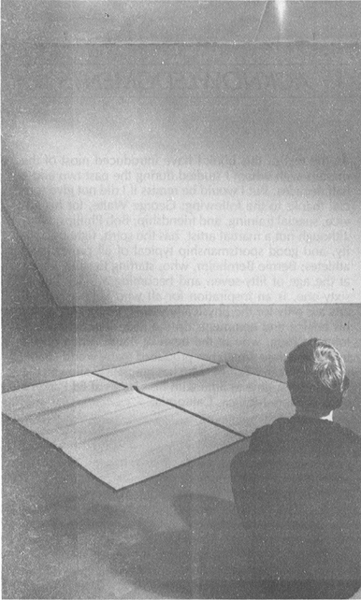
S everal hundred books have been written about performing the Oriental martial arts, but no more than a handful address the significance of Zen in the martial arts. This is an unfortunate oversight since the martial arts in their finest form are much more than a physical contest between two opponentsa means of imposing ones will or inflicting damage upon another. Rather, for the true master, karate, kung-fu, aikido, wing-chun, and all the other martial arts are essentially avenues through which they can achieve spiritual serenity, mental tranquility, and the deepest self-confidence.
Yet I had studied the martial arts for several years before becoming aware of this. In the early stages of training, like most students, I spent my time learning and refining complex physical techniques and movements. Only occasionally did a sifu (instructor in Chinese) hint that there were other lessons to be mastered.
Of course, it was not my intention when I started studying karate in 1952 to become involved with Zen or any other spiritual discipline. In fact, nothing could have been further from my mind. Had anyone told me where my path would eventually lead, I would probably have dismissed the notion as nonsense, because I associated Zen with mysticism and prided myself in being a pragmatist. Only after several years of training did I come to realize that the deepest purpose of the martial arts is to serve as a vehicle for personal spiritual development.
The martial arts began to develop this emphasis on personal spiritual growth in the sixteenth century, when the need for fighting skills in the Orient diminished. The martial arts were transformed from a practical means of combat-to-the-death to spiritual educational training that emphasized the personal development of the participant. Thus the art of fighting with the sword, kenjutsu, became transformed into the way of the sword, kendo. Soon other martial arts were given the ending - do, which means the way, or more fully, the way to enlightenment, self-realization, and understanding. This Zen element is reflected to various degrees in aikido, judo, karate-do, tae-kwon-do, hapkido, and jeet-kune-do, among others.
The role of Zen in the martial arts defies easy definition because Zen has no theory; it is an inner knowing for which there is no clearly stated dogma. The Zen of martial arts deemphasizes the power of the intellect and extols that of intuitive action. Its ultimate aim is to free the individual from anger, illusion, and false passion.
It is possible for the student to make contact with Zen in the martial arts only by a slow and roundabout route. Once I came to this realization, familiar to all true masters of the arts, I began to keep notes on my discoveries. For the past decade, Zen in the Martial Arts has been the great story over my horizon, the book I most wanted to write. But there was always another master to study with or another discipline to learn before I felt I was prepared.
This is not a book, however, for the reader who wishes to master Zen, for the concepts central to that tradition are certainly not acquired from the written word. Nor is this a book for those who expect to learn how to perform the amazing feats of martial artists who break boards and bricks with their bare hands and easily defeat several opponents at a time. The reader interested only in learning about the physical aspects of the martial arts can adventure alone in the literature without my guidance. Instead, this is a book from which readers may learn to apply the principles of Zen, as reflected in the martial arts, to their lives and thus open up a potential source of inner strength they may never have dreamt they possessed.





